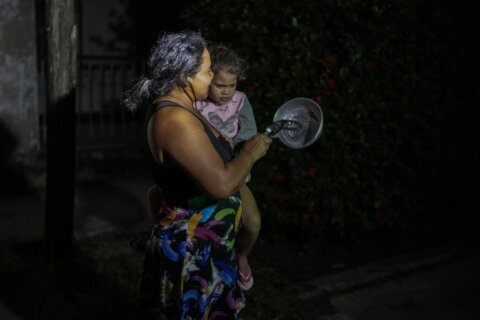What if I told you that bullying occurs in senior living? As one of my activity professionals describes it, “It’s middle school with wrinkles.” Fistfights at karaoke. Gossip and cruelty.
Yeah, it’s a thing.
I explored this topic with Eleanor Feldman Barbera, who goes by “Dr. El.” She’s an accomplished eldercare coach and speaker and writes extensively about mental health and aging.
[READ: Assisted Living Checklist.]
What Is Senior Bullying?
As Dr. El explains, it’s the kind of bullying that you might have seen in junior high. But if you want an official definition, senior bullying is intentional, repetitive and aggressive behavior that involves some sort of imbalance in power or strength. So, it’s something that happens on purpose, and it involves some kind of aggression. It happens in situations where people are having a power imbalance; for example, an aggressive bully picking on someone who’s shy and reserved.
Example include:
— Verbal aggression. It could be somebody saying something about how someone looks.
— Exclusion from an activity or table in the dining room (even when there is “open” seating).
— Physically aggressive bullying that could involve kicking, hitting or another physical behavior.
— Spreading gossip and rumors.
I can relate to the open seating issue. My mom was at a table with bullies, and changing her table became a huge process, not just logistically but diplomatically.
You will most likely never witness bullying firsthand when visiting your mom or dad. It takes place quietly when nobody’s around to see it. So, you might want to come back in the evenings or on the weekends when there aren’t as many staff present. You might talk to some of the other families that have loved ones there. Even speak with some of the other residents and ask how people are getting along and if they’ve ever seen any bullying problems. In my mom’s community, I observed a lot by just having lunch at her table. People don’t realize they’re bullying when they’re doing it, and you can observe quite a lot.
Back to the Future
Dr. El told me she relates some of this to the movie “Back to the Future.” In the film, the character Biff is the bully — and he would likely grow up to be the bully in senior living. Personality traits tend to hold true over a lifetime.
Of course, you can see bullying behaviors from people with no history of that behavior. Dementia, including Alzheimer’s, can make people aggressive. Then you have to look at intent. A lot of the behaviors that you might see with someone who has dementia can be frightening. People with dementia like to wander, and sometimes they’ll wander into somebody’s room. So, if you’re in your room and you can’t get up and out of bed without assistance, that could be quite frightening, and it might happen repeatedly. But it’s not being done intentionally.
More Frequent Than You Think
Research suggests that every community has some kind of senior bullying. The tendency would be to move mom or dad out of the community, but the grass isn’t always greener.
However, when you’re “shopping” around, you should come right out and ask the tour guide if there is senior bullying. Staff should acknowledge that there’s some sort of bullying going on, so press them on how they handle it. If they say “no, we never have bullying here,” then you know that either the person that you’re touring with or the facility isn’t paying attention. You want to hear them say, “yes, that’s sometimes a problem,” and then find out how they’re handling it. Keep in mind, too, that a new arrival at a community is also the most vulnerable to bullying because they don’t have a posse.
[See: How Assisted Living Improves Quality of Life.]
What to Do If It’s Happening to Your Loved One
Dr. El recommends that you try to work it out within the community. Talk to the staff and administration, and figure out a way to handle the situation where you are, because moving somebody to another place can be really a big project.
If you witness it first-hand or your loved one does, it’s important to report it. Prepare to provide specifics.
Your loved one might not say anything definitive to you, but they might say it in code. They may say something like “that lady is mean.” Or you may notice that mom doesn’t go to a certain class any longer. She might start to look depressed or more withdrawn or not want to leave her apartment. She may be taking a very long, indirect route to get places in order to avoid bullies.
Staff Can Help
You can help facilitate remedies by working with the activity staff, who might, for example, be able to pair your bullied parent with a partner. Dr. El recommends that the bullies get involved in positive activities. For example, if you’re knitting hats for babies, it’s really hard to be a bully when you’re doing something good.
Direct care staff who witness bullying should bring it to the attention of administration. Then, it’s up to them to consider programming and policies to deal with situations. It may be as simple as separating two people. They should talk to the bully and the person being bullied, and if necessary, the bully’s family.
Dr. El recommends civility training within a long-term care setting. The facility can post signs that reinforce messages like showing respect. It’s also a good idea to teach bystander intervention and show people how to intervene if they see bullying. A lot of times, people don’t want to say anything because they don’t want the bully to turn their attention to them.
What If Your Parent IS the Bully?
You know mom and dad. Are they bullies? Dr. El recommends that if so, you may want to have them engage in counseling, right from the start, working with a social worker.
Sometimes someone has no history of being a bully but starts to act out, perhaps because he or she is experiencing a loss of control. So, we do need some compassion for the bully, and we owe it to them to see what’s going on and appeal to their higher angels.
[READ: Assisted Living Versus Senior Home Care.]
If you’re not getting the satisfaction you need from administration and your parent is in a skilled nursing facility, you might be able to call an ombudsman.
More from U.S. News
Exercise Equipment for Seniors
18 Gift Ideas for Nursing Home Residents
The Best Ways for Nursing Home Residents to Stay Active
Bullying in Senior Living: What to Do originally appeared on usnews.com







